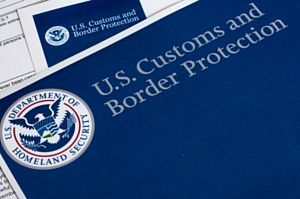The Importer Security Filing (ISF) was placed into effect on January, 26, 2009. Today these filings have numerous updated and pending changes. The CBP has implemented a revised enforcement strategy which will allow for local discretion at the port level. Do you know the key points behind the updated ISF Strategy, what is affected and how the CBP will track the violations? These are a few of the changes to the Importer Security Filing (ISF) Enforcement Strategy.

The Key Points behind the New Strategy
- To develop a standardized approach which permits the CBP HQ to conduct an analysis into non-compliant ISF filings with the intent to conduct a focused outreach.
- The doctrine of the ISF strategy incorporated three warnings (informed compliance outreach) to each infringement by an importer before the CBP would engage in a liquidated damage claim against that importer’s bond. The informed compliance outreach may be completed by telephone, letter or e-mail.
- This approach allows the CBP to have a more visible view of the repeat violator along with showing any geographical areas that may need a more concentrated focus with the ISF outreach.
- Liquidated damages claim violations are required within 6 months of the violation; additionally, the policy does not rule out CBP’s 6 year statute of limitations on liquidated damages claims.
- Ports have been given time to concentrate their enforcement actions on the most severe violations (i.e., missing ISFs, or significantly late).
- What defines significantly late is determined by each individual port. This will only apply to shipments in their ISF filings (or lack thereof) that negatively impacts the CBP’s job to efficiently assess the risk and hold cargo.
- The 12 month review period where all records were analyzed from the IFS, reviewing each individual violation recorded to ensure the violations aligned with the objective of the enforcement strategy. This was implemented on July 9, 2013 and ended May, 13, 2015.
No More Grace Periods as of May 13, 2015

For the past seven years importers have been required to file under the Customs Border Protection Importer Security Filing enforcement. ISF enforcement has gone through several stages over the past seven years and enforcement with the “Three Strikes, You’re Out” method. On May 13, 2015 this method ended and enforcement has become much more persistent and penalizing. Late ISF filings will not be accepted by CBP without penalty.
Citations already given by the by CBP for ISF infractions may leave importers open to additional or new fines. For middle and high quantity importers this did have a major financial and operational impact as their ISF management was not monitored and controlled.
The changes implemented by the CBP are making life easier for importers with an Automated Customs Environment (ACE) which allows for combined filing of 7501/3461 Customs and ISF access.
AFC International Customs Brokers have all the latest updates and knowledge to assist you in your filings and imports. Contact us today at AFC International, LLC to get a quote.


Leave a Reply
You must be logged in to post a comment.